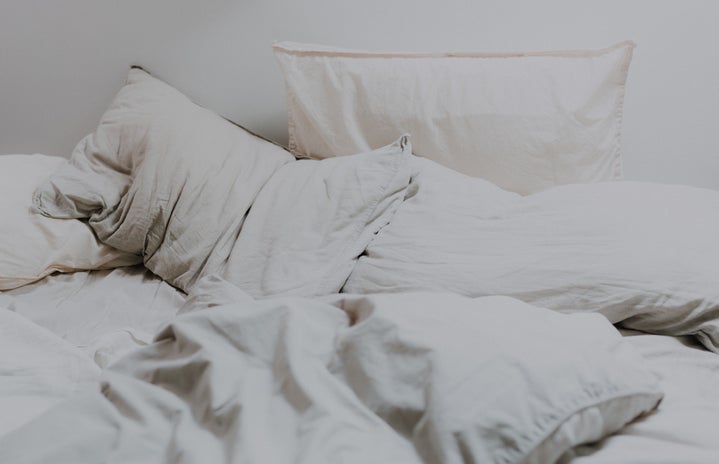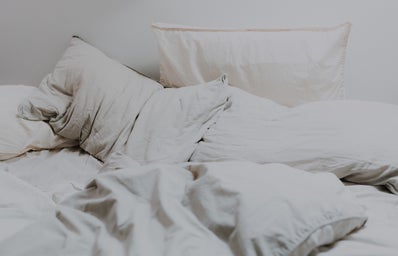Are you tired of being tired? The CDC recommends that adults between the ages of 18-60 get between 7-9 hours of sleep each night to maintain good physical health, mental health, and overall quality of life. But did you know that 1 in 3 adults do not get enough sleep each night? What can we do to change this? Keep reading if you want tips for a better night’s sleep.
1. Be consistent

Go to sleep at the same time every night and wake up at the same time every morning, even on weekends. Having a routine can help regulate your circadian rhythm and get you in the mood for bed.
2. Exercise

Exercising not only helps you remain healthy but it can also improve sleep. Exercise naturally boosts the sleep hormone melatonin, which will allow for a better night’s sleep. Ensure you do not exercise too close to bedtime; exercising can be a stimulating activity, so try to exercise in the morning or early evening.
3. Keep snacking light

Refrain from eating heavy or substantial meals late at night. These meals can overload your digestive system and negatively impact your sleep quality.
4. No work in the bedroom

The bedroom should be a place of relaxation. Try to avoid surfing the internet, checking emails, or doing work in bed.
5. Turn off electronics

The blue light from your phone, tablet, or computer could be the cause of your sleepless nights. Blue light interferes with your circadian rhythm by suppressing the body’s melatonin release, a hormone that makes you feel sleepy. Turn off your phones, tablets, or any other electronic at least one hour before bed.
6. Limit caffeine, tobacco, and alcohol use before bed
All these substances are stimulating and can keep you up at night. Refrain from drinking caffeine or alcohol or smoking tobacco before sleeping, and try warm milk or tea instead.
7. Limit daytime naps

Long daytime naps can interfere with your quality of sleep. Try to limit your naps to only 30 minutes and refrain from pulling all-nighters.
8. Know when to go to the doctor

If you have tried lifestyle changes and aren’t seeing results, contact your doctor to see if they can help.
I hope this list gave you tips for improved sleep quality.
If you would like to write for Her Campus Mount Holyoke, or if you have any questions or comments for us, please email hc.mtholyoke@hercampus.com.




